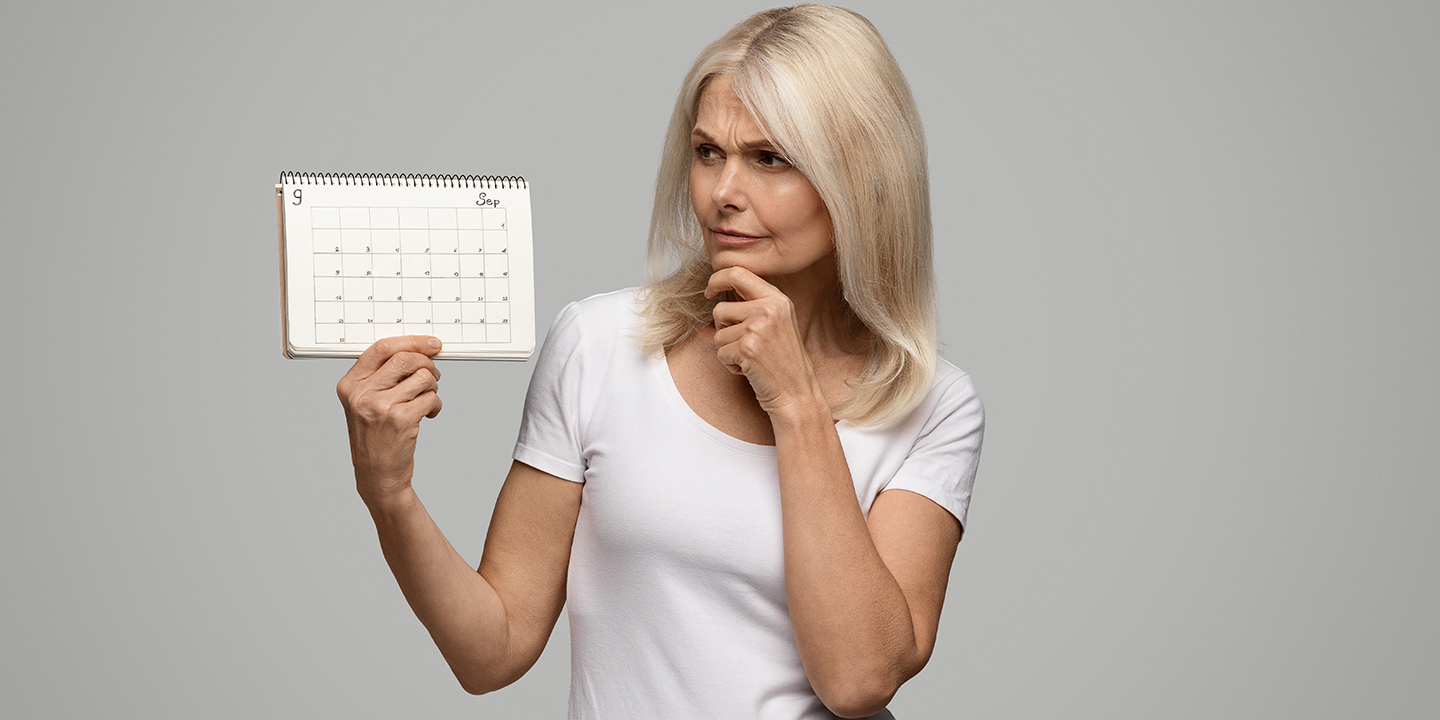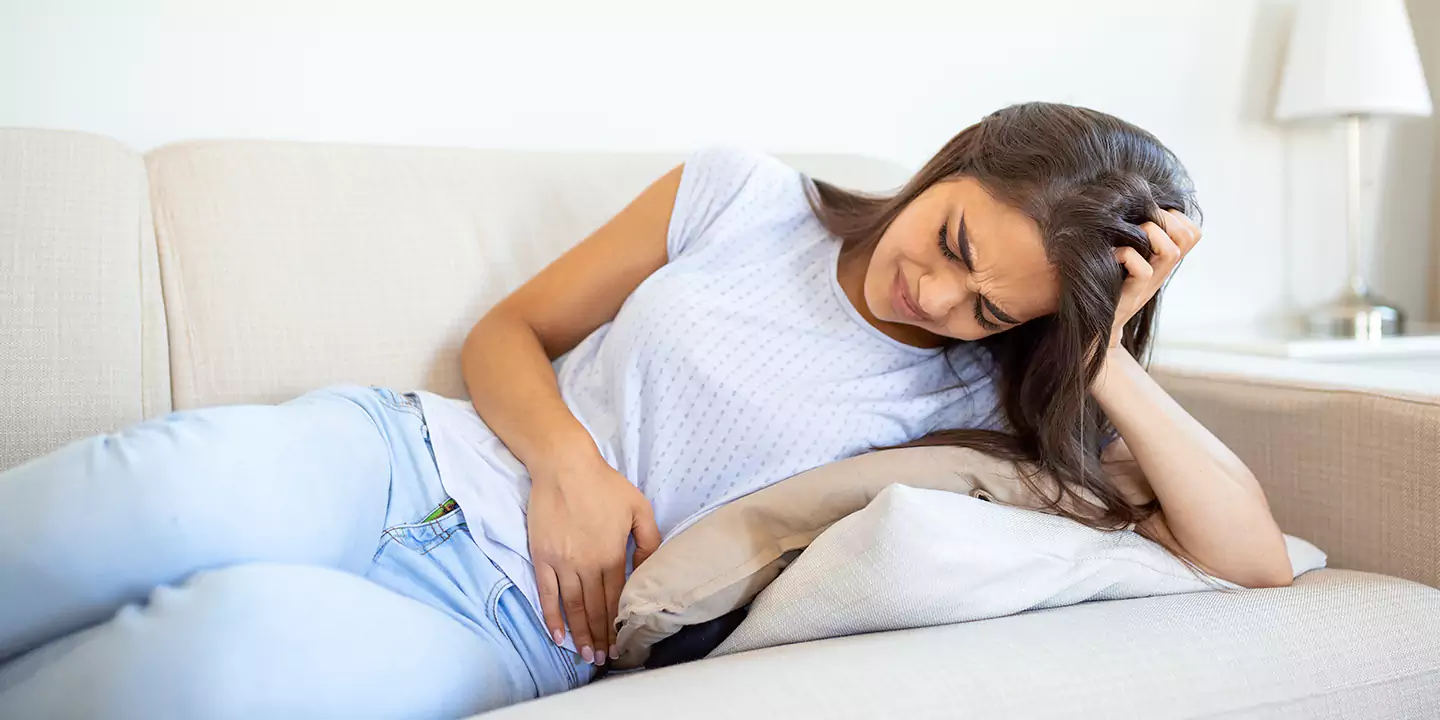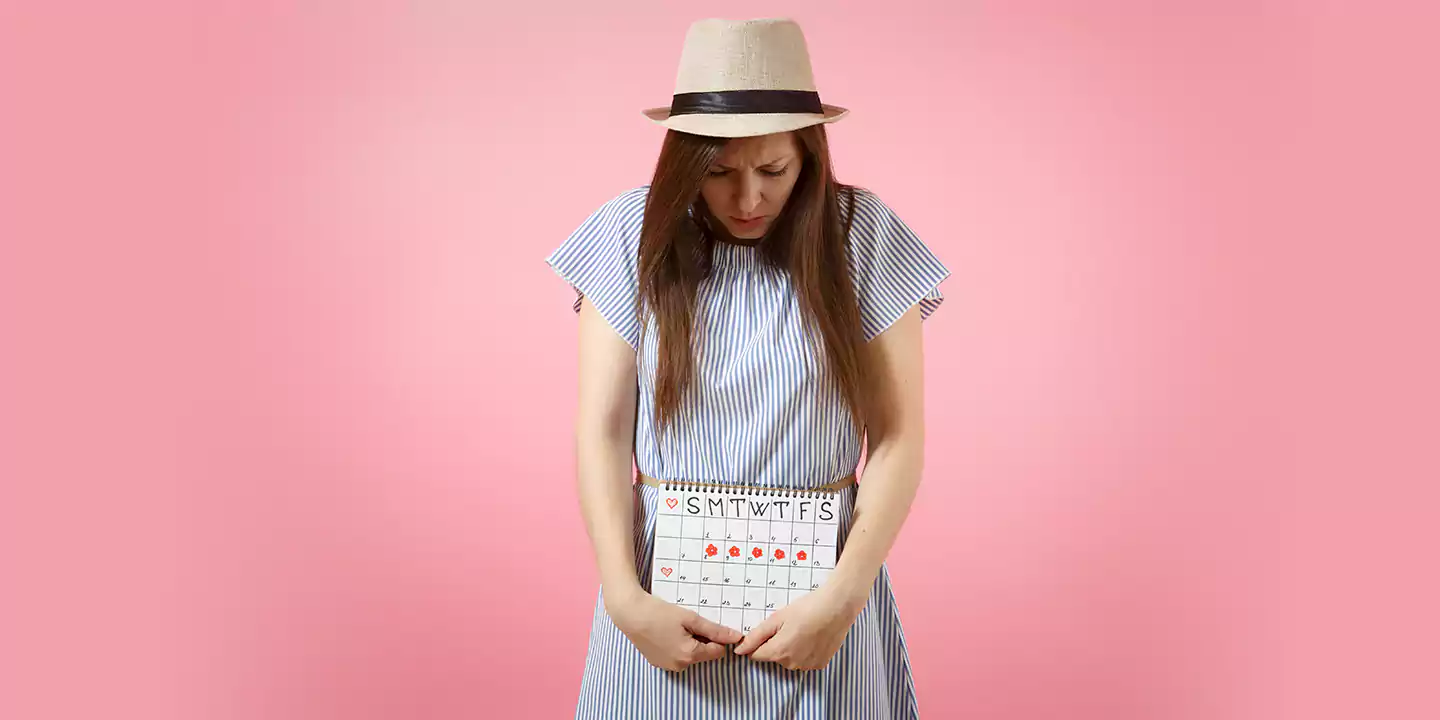
Menstruation and menstrual cycle is a natural aspect of a woman’s reproductive system, undergoing significant changes throughout her life. Like every aspect of our physiological well-being, our period and menstrual cycle undergo significant changes during every phase of our life.
Understanding and prioritizing these changes during your 20s, 30s, and 40s ensures you can delve into and balance an individual’s physical and emotional well-being. There are hormonal transformations involved during each decade that influence fertility and overall well-being.
This article will explore every detail you need about how your period changes during your 20s, 30s, and 40s.
In this Article
Transitioning from adolescence to adulthood brings about profound changes in a woman’s body, reflected in the menstrual cycle. Surprisingly, during the early 20s, the menstrual cycle is the most irregular because the body adjusts to establish a regular ovulatory pattern.
The average length of a woman’s menstrual cycle is around 28 days. However, it can also vary between 21 to 35 days. Experiencing hormonal fluctuations during this period is normal, and, in some instances, experiencing heavy or light flow during this phase is considered standard.
-
It is a hormonal rollercoaster
In the early 20s, the endocrine system is still fine-tuning regarding hormone production and secretion, especially with estrogen and progesterone playing a crucial part in the process.
During the first half of the menstrual cycle, the estrogen levels surge, which stimulates the growth of the uterine lining.
This is followed by an increase in progesterone during the latter half, which helps prepare the uterus for a potential pregnancy. However, if fertilization does not occur, estrogen and progesterone levels drop significantly, which leads to the shedding of the uterine lining and the onset of menstruation.
-
Experiencing menstrual pain and cramps
Many women in their 20s experience more intense menstrual cramps, known as dysmenorrhea. This can be attributed to higher levels of prostaglandins, hormone-like substances that promote uterine contractions.
Several conditions, like PCOS, endometriosis, etc., can also be a trigger contributing to the painful cramps and similar symptoms. Indulging in regular exercise and a healthy diet with stress management techniques is thus considered effective in alleviating pain and discomfort.
-
Lifestyle impact
Does lifestyle have any influence on your periods during your 20s? The short answer to that is yes.
Several lifestyle factors like diet, exercise, and stress management can significantly influence menstrual regularity. The 20s are crucial for establishing healthy habits that can positively impact reproductive health later in life.
If you have an unhealthy lifestyle wherein you aren’t eating nutritious food or not focusing on maintaining a healthy body weight, it will eventually take a toll on your hormonal balance, disrupting the menstrual cycle.
The 30s: Focus on Fertility Peaks
In most cases, the 30s are considered the peak reproductive age for women, when they feel stable in their lives and relationships to consider having a baby. During this phase, the menstrual cycles become more regular and predictable.
Additionally, hormonal fluctuations reduce and regulate significantly and become much less dramatic, further contributing to a more stable menstrual pattern. During this period, fertility is at its peak as well, as the majority of the women might be planning to expand their families.
-
Focus on stabilizing the hormones
By the time women reach their 30s, hormonal fluctuations begin to settle. The regular release of eggs during ovulation becomes more consistent, contributing to a more predictable menstrual cycle.
That said, we have patients at Queen’s Gynecology who are still struggling to find a sense of stability with their menstrual cycles and experience delays or early onset of their period. Experience with fertility is always subjective. So, what might be stabilized for one woman might not be the same for another.
If you are experiencing something derailing about your menstrual cycle and hormonal balance, consulting a medical professional for it is always ideal.
-
Emphasis on fertility peaks
Fertility is generally highest in the early 30s, with peak fertility occurring around the age of 30. As women approach their mid-30s, fertility gradually declines, and the likelihood of conception decreases.
There is research that proves that women tend to experience a decline in their fertility after 35 years. That said, like other factors, even fertility is a subjective experience. If you are worried about your fertility after crossing your mid-30s, it is advised to consult a gynecologist to get everything checked for peace of mind.
The reduced fertility in the mid-30s is caused by the decrease in the quantity and quality of the eggs reserved in the ovaries.
-
Changes in the menstrual flow
Menstrual flow may also change in the 30s. Some women may notice a decrease in the duration of their periods, while others may experience changes in blood flow. These variations are often influenced by stress, lifestyle changes, and overall health.
Additionally, some women also experience irregularities in their periods, which can be a matter of concern for many. If you are not getting your periods or getting them frequently, it depicts signs of hormonal imbalance or other complications.
In such instances, our team at Queen’s Gynecology can help you figure out the root cause behind the complication and treat it from the nub to regulate the menstrual flow and frequency.
The 40s: Perimenopause and Hormonal Shifts
The last phase before menopause generally occurs during the 40s. It marks the beginning of perimenopause, which is a transitional phase leading up to menopause, which is the cessation of menstrual periods.
In general, the phase is characterized by hormonal fluctuations and can introduce changes to one’s menstrual cycle.
-
Explaining perimenopause
Perimenopause is common during the late 30s or the 40s, although the age of onset varies widely among women. During this phase, the production of estrogen from the ovaries reduces significantly, leading to irregular menstrual cycles.
Think of this phase as the precursor to your menopause. During this period, it is normal for the menstrual flow to either become heavier or lighter during each cycle. Also, the duration of each cycle might vary due to the hormonal displacement.
-
Experiencing irregular cycles
When it comes to depicting the most common sign of perimenopause, it has to be irregular menstrual cycles. Some women may experience skipped periods or cycles that are shorter or longer than usual. This variability is attributed to the erratic hormonal fluctuations that precede menopause.
If you are experiencing this sporadically and the situation is accompanied by a variety of other symptoms, it is ideal that you see a doctor who can help you figure out what’s wrong and what can be done to address these concerns.
-
Approaching menopause
Fertility declines significantly in the late 30s and 40s, and conception becomes more challenging. While pregnancy is still possible during perimenopause, the chances of achieving a successful pregnancy diminish.
Also, this is the phase where you are approaching menopause. Let us clarify the basic details concerning menopause. When a woman has not experienced their period for 12+ months consecutively, that’s when they are considered to have hit their menopause. The average age of menopause is around 51, but it can occur earlier or later since everyone’s experience with it is subjective.
Conclusion
The menstrual cycle is a complex interplay of hormones, and its evolution throughout these decades reflects the dynamic nature of the female reproductive system. There are many standard and subjective factors that we must consider when discussing the menstrual cycle through each decade and phase.
If you are concerned about your menstrual cycle, the symptoms, and the complications that you are experiencing, our team of experienced and compassionate gynecologists at Queen’s Gynecology is here to help you navigate through the complexities.
For more details and consultations, kindly contact us at +91 9654999888.










